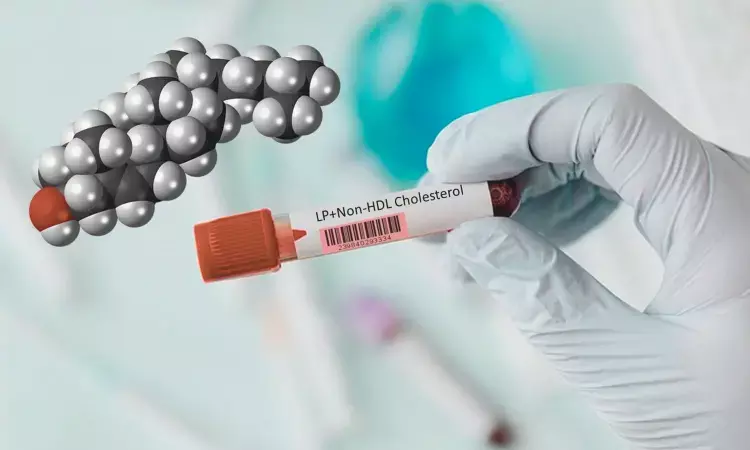- Home
- Medical news & Guidelines
- Anesthesiology
- Cardiology and CTVS
- Critical Care
- Dentistry
- Dermatology
- Diabetes and Endocrinology
- ENT
- Gastroenterology
- Medicine
- Nephrology
- Neurology
- Obstretics-Gynaecology
- Oncology
- Ophthalmology
- Orthopaedics
- Pediatrics-Neonatology
- Psychiatry
- Pulmonology
- Radiology
- Surgery
- Urology
- Laboratory Medicine
- Diet
- Nursing
- Paramedical
- Physiotherapy
- Health news
- Fact Check
- Bone Health Fact Check
- Brain Health Fact Check
- Cancer Related Fact Check
- Child Care Fact Check
- Dental and oral health fact check
- Diabetes and metabolic health fact check
- Diet and Nutrition Fact Check
- Eye and ENT Care Fact Check
- Fitness fact check
- Gut health fact check
- Heart health fact check
- Kidney health fact check
- Medical education fact check
- Men's health fact check
- Respiratory fact check
- Skin and hair care fact check
- Vaccine and Immunization fact check
- Women's health fact check
- AYUSH
- State News
- Andaman and Nicobar Islands
- Andhra Pradesh
- Arunachal Pradesh
- Assam
- Bihar
- Chandigarh
- Chattisgarh
- Dadra and Nagar Haveli
- Daman and Diu
- Delhi
- Goa
- Gujarat
- Haryana
- Himachal Pradesh
- Jammu & Kashmir
- Jharkhand
- Karnataka
- Kerala
- Ladakh
- Lakshadweep
- Madhya Pradesh
- Maharashtra
- Manipur
- Meghalaya
- Mizoram
- Nagaland
- Odisha
- Puducherry
- Punjab
- Rajasthan
- Sikkim
- Tamil Nadu
- Telangana
- Tripura
- Uttar Pradesh
- Uttrakhand
- West Bengal
- Medical Education
- Industry
Inflammation and Remnant Cholesterol Together Drive Highest Heart Risk in Kidney Patients: Study Shows

Denmark: Emerging evidence published in the Atherosclerosis journal points to a concerning association between low-grade inflammation, elevated remnant cholesterol levels, and an increased risk of cardiovascular events and mortality in individuals with compromised kidney function.
The study, based on data from over 100,000 participants in the Copenhagen General Population Study, examined the long-term health outcomes of 9,935 individuals with impaired renal function, defined by an estimated glomerular filtration rate (eGFR) below 60 mL/min/1.73 m².
Daniel Elías-López, Department of Clinical Biochemistry, Copenhagen University Hospital - Herlev Gentofte, Borgmester Ib Juuls Vej 1, Herlev, DK-2730 Denmark, and colleagues aimed to determine whether low-grade inflammation, measured via high-sensitivity C-reactive protein (CRP), and elevated remnant cholesterol, not typically detected in routine LDL cholesterol testing, independently or jointly contributed to adverse health events in this population.
The following were the key findings of the study:
- During follow-up, individuals with impaired kidney function experienced 566 myocardial infarctions (MIs), 1,122 atherosclerotic cardiovascular disease (ASCVD) events, and 3,139 deaths.
- Participants with both elevated C-reactive protein (CRP) and high remnant cholesterol had a significantly higher risk of adverse outcomes compared to those with low levels of both markers.
- The adjusted hazard ratio for myocardial infarction in individuals with both high CRP and high remnant cholesterol was 1.39.
- The hazard ratio for ASCVD in this group was 1.33.
- The hazard ratio for all-cause mortality in individuals with both elevated markers was 1.20.
- Participants with high CRP but normal remnant cholesterol had a hazard ratio of 1.28 for myocardial infarction.
- The hazard ratio for all-cause mortality in individuals with high CRP but normal remnant cholesterol was 1.18.
- Participants with high remnant cholesterol but normal CRP had slightly elevated risks, though not all reached statistical significance.
Notably, these findings emphasize a potentially overlooked cardiovascular risk in patients with chronic kidney disease (CKD), as remnant cholesterol and inflammation are not typically the primary focus in conventional lipid assessments. While LDL cholesterol has long been the standard for evaluating cardiovascular risk, the current study sheds light on the importance of monitoring these alternative markers, especially in high-risk populations such as those with CKD.
The authors suggest that the dual presence of systemic inflammation and elevated remnant cholesterol acts synergistically to worsen vascular health, potentially accelerating atherosclerosis and contributing to adverse cardiovascular and mortality outcomes. These insights could inform future strategies for cardiovascular risk reduction in CKD patients.
Given the study's observational nature, the researchers acknowledge the need for randomized controlled trials to explore effective interventions targeting remnant cholesterol and systemic inflammation. They propose that future research, potentially through target trial emulation, should aim to identify optimal therapeutic approaches for mitigating cardiovascular risks in individuals with impaired renal function.
"The large-scale analysis reveals that low-grade inflammation and remnant cholesterol, often missed in standard testing, may significantly amplify the risk of myocardial infarction, atherosclerotic events, and premature death in those with kidney impairment. These findings may play a pivotal role in guiding preventive strategies in this vulnerable population," the researchers concluded.
Reference:
Elías-López, D., Kobylecki, C. J., Vedel-Krogh, S., Doi, T., & Nordestgaard, B. G. (2025). Association of low-grade inflammation and elevated remnant cholesterol with risk of ASCVD and mortality in impaired renal function. Atherosclerosis, 119241. https://doi.org/10.1016/j.atherosclerosis.2025.119241
Dr Kamal Kant Kohli-MBBS, DTCD- a chest specialist with more than 30 years of practice and a flair for writing clinical articles, Dr Kamal Kant Kohli joined Medical Dialogues as a Chief Editor of Medical News. Besides writing articles, as an editor, he proofreads and verifies all the medical content published on Medical Dialogues including those coming from journals, studies,medical conferences,guidelines etc. Email: drkohli@medicaldialogues.in. Contact no. 011-43720751


